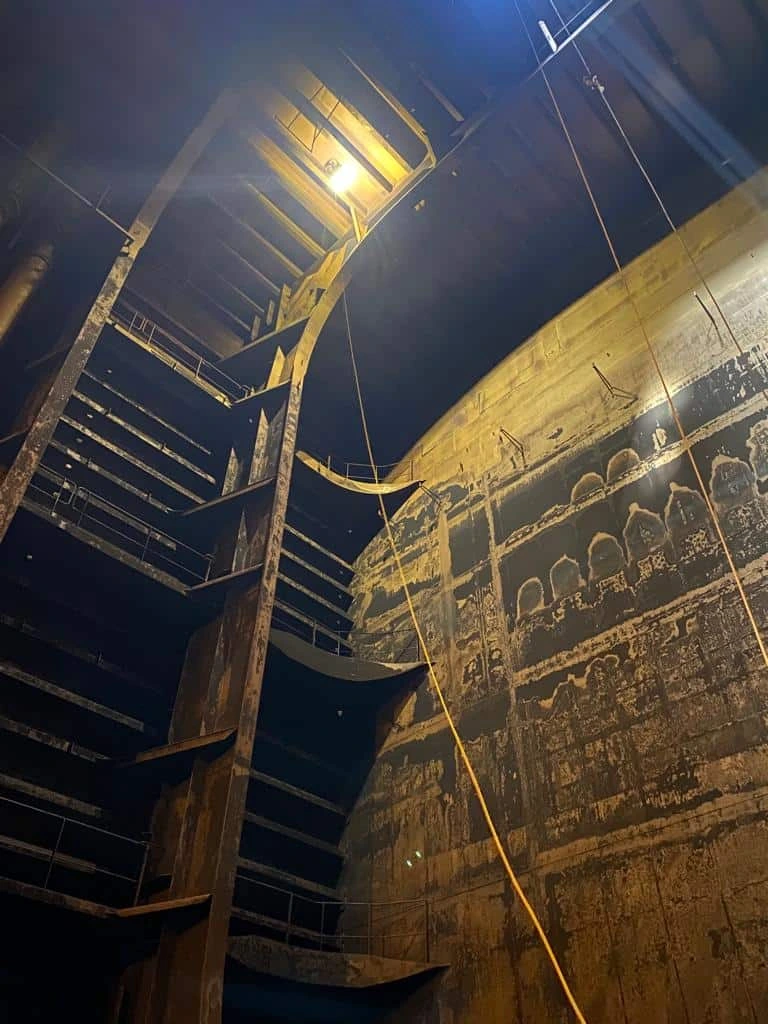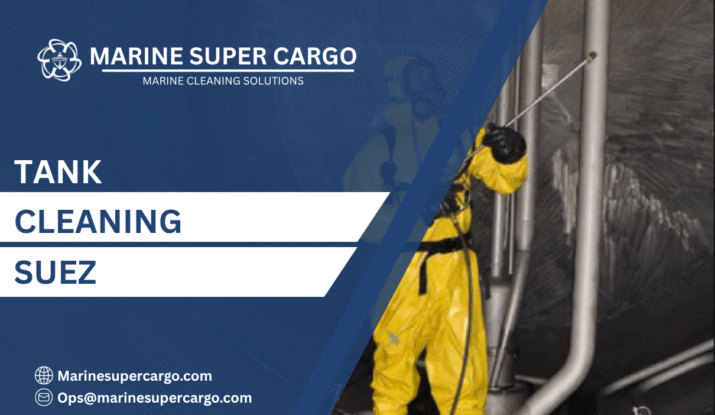Immediate Action Protocols for Tank Cleaning Incidents
Tank cleaning Suez operations demand unwavering attention to emergency preparedness. When incidents occur during tank cleaning Suez procedures, the response speed determines crew safety and environmental protection. Marine Super Cargo specializes in comprehensive emergency protocols specifically designed for tank cleaning Suez scenarios, ensuring vessels meet international safety standards while operating through this critical maritime corridor.
Understanding Critical Risks During Tank Cleaning Operations
Tank cleaning Suez incidents typically stem from several sources. Cargo residue reactions, inadequate ventilation systems, equipment malfunctions, and human error create potential emergency situations. Forward holds and aft compartments present unique challenges, with confined space hazards requiring specialized response techniques.
Hazardous atmospheres develop rapidly during tank cleaning Suez procedures. Oxygen deficiency, hydrogen sulfide accumulation, and hydrocarbon vapor concentration demand continuous monitoring. MARPOL Annex I regulations mandate strict waste management protocols, while MARPOL Annex VI governs emission controls during cleaning operations.
Emergency Response Framework Compliance
The International Maritime Organization (IMO) establishes global standards for emergency response during tank cleaning operations. Marine Super Cargo implements IMO-certified protocols throughout every tank cleaning Suez engagement, ensuring regulatory compliance and crew protection.
MARPOL Annex I specifically addresses oil pollution prevention, requiring immediate containment measures when spills occur during tank cleaning Suez operations. Our emergency response teams deploy specialized equipment to port and starboard sides simultaneously, creating containment barriers before contamination spreads beyond the vessel’s beam.

First Response Actions for Tank Cleaning Emergencies
When emergencies arise during tank cleaning Suez operations, established response hierarchies activate immediately. Crew members must sound general alarms, evacuate affected compartments, and secure ventilation systems. The master assumes command coordination while designated emergency teams deploy from bow to stern.
Atmospheric testing equipment provides critical data within minutes. Gas detection systems monitor oxygen levels, explosive gas concentrations, and toxic substance presence throughout affected tanks. Marine Super Cargo supplies advanced monitoring equipment calibrated specifically for tank cleaning Suez environmental conditions.
Medical emergencies require immediate intervention. Exposure to tank cleaning chemicals demands rapid treatment protocols. Our emergency response teams maintain medical supplies and trained personnel at strategic positions throughout Suez operations.
Coordination with Suez Authorities
Tank cleaning Suez incidents require immediate notification to Suez Canal Authority officials. Regulatory compliance mandates reporting timeframes and specific information disclosure. Marine Super Cargo maintains direct communication channels with port authorities, ensuring seamless coordination during emergency response.
Port State Control inspections follow most tank cleaning Suez incidents. Our documentation protocols satisfy regulatory requirements while protecting vessel operators from unnecessary delays. Complete incident logs, atmospheric test records, and response action timelines demonstrate compliance with IMO standards.
Equipment and Resource Deployment
Emergency response equipment must be positioned strategically throughout the vessel. Fire suppression systems, breathing apparatus, chemical neutralization agents, and medical supplies require regular inspection and immediate accessibility. Starboard and port-side deployment stations ensure response teams reach incident locations rapidly.
Marine Super Cargo provides comprehensive emergency equipment packages specifically configured for tank cleaning Suez operations. Our inventory includes specialized ventilation fans, gas detection arrays, and containment booms designed for the unique challenges of Suez transit operations.
Training and Preparedness Protocols
Regular emergency drills maintain crew readiness for tank cleaning Suez incidents. Simulation exercises should replicate realistic scenarios—gas releases, fires, chemical exposures, and man-overboard situations. Documentation of training sessions satisfies MARPOL verification requirements during port inspections.
Prevention remains the most effective emergency response strategy. Marine Super Cargo conducts pre-cleaning risk assessments, identifying potential hazards before operations commence. Our systematic approach reduces incident probability while ensuring crews understand emergency procedures thoroughly.
For comprehensive information on preventive measures, review our tank cleaning safety protocols and chemical cargo handling procedures.
Post-Incident Analysis and Reporting
Following tank cleaning Suez incidents, thorough investigation determines root causes and prevents recurrence. Documentation must detail timeline sequences, equipment performance, crew responses, and environmental impacts. IMO guidelines require formal reporting structures that Marine Super Cargo helps vessel operators complete accurately.
Continuous improvement processes incorporate lessons learned from each incident. Our emergency response protocols evolve based on operational experience and regulatory updates, ensuring clients receive cutting-edge safety management.
Frequently Asked Questions
What immediate actions should crew take during tank cleaning emergencies?
Sound alarms, evacuate personnel from affected areas, secure ventilation systems, and notify the master immediately. Deploy emergency response teams and begin atmospheric monitoring.
How quickly must Suez authorities be notified of tank cleaning incidents?
Immediate notification is required for any incident involving pollution risk, injury, or operational disruption. Contact Suez Canal Authority within the first hour of incident recognition.
What MARPOL regulations apply to tank cleaning emergencies?
MARPOL Annex I governs oil pollution prevention and waste management, while Annex VI addresses emission controls. Compliance requires immediate containment and proper discharge documentation.
Does Marine Super Cargo provide emergency response services in Suez?
Yes, Marine Super Cargo maintains 24/7 emergency response capabilities throughout the Suez region, including specialized equipment, trained personnel, and regulatory liaison services.
What documentation is required after tank cleaning incidents?
Complete incident logs, atmospheric test records, crew statements, response action timelines, and environmental impact assessments. IMO and MARPOL compliance requires comprehensive documentation for Port State Control review.


